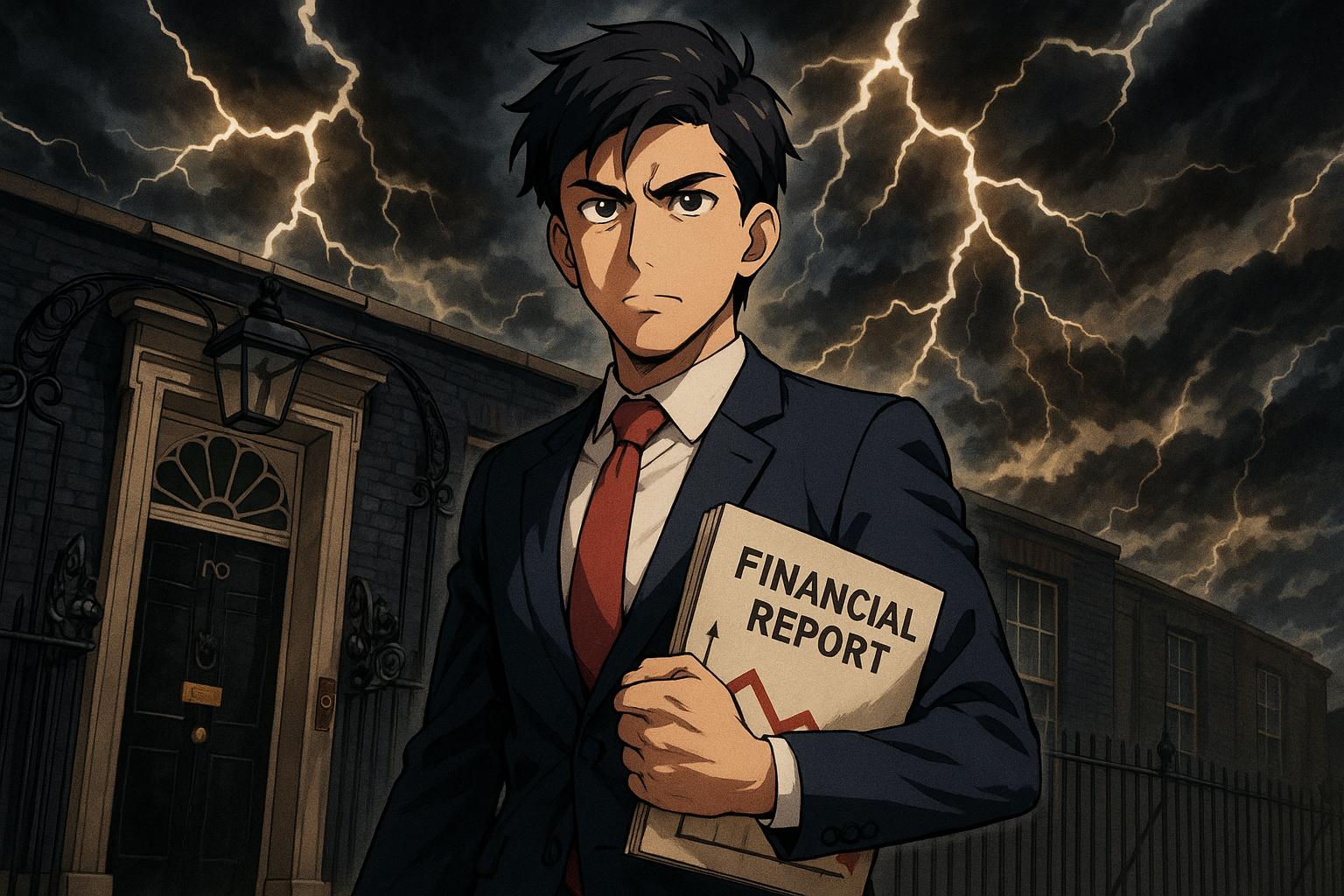A message from an unrecognised number appeared on my phone, igniting a cascade of disbelief. “Liz Truss here. Please can you give me a call?” The Prime Minister had only been in Downing Street for a little over a month, and I was still grappling with my own political career after a disappointing summer leadership contest. At that moment, I was holed up in a hotel in Brussels promoting a book about the NHS, unaware that a significant shift in my political trajectory awaited.
Having received confirmation that this message was genuine, I was quickly connected to Truss, who was grappling with the fallout from her controversial mini-Budget—an ill-fated economic package that had sent the British pound spiralling and investor confidence crashing. Our political paths had never aligned; she hadn’t supported my leadership bids, and I certainly hadn’t backed her during the tumultuous transition that had culminated in her becoming Prime Minister. However, on this occasion, what she sought was straightforward: I was to step into the role of Chancellor, following the rapid dismissal of Kwasi Kwarteng after just 38 days in office—a record for the UK.
It was a moment fraught with peril. The mini-Budget had proposed £45 billion in unfunded tax cuts, igniting a crisis that markets dubbed the “moron premium”, reflecting the punitive yields that investors demanded from UK bonds. The immediate task at hand was daunting: we were faced with a financial black hole of £72 billion, a shortfall that equated to more than two per cent of GDP—figures that ultimately indicated a need for both drastic spending cuts and tax increases.
Before assuming my new role, I wrestled with the implications of this unexpected appointment. Confronted by my wife, Lucia, who had previously supported my endeavours in frontline politics, I recounted Liz Truss’s surprising offer to become Chancellor, expressing both astonishment and anxiety. We deliberated the immense honour associated with the position, tempered by the realization that I might become the shortest-serving Chancellor in history. Nevertheless, I felt a profound responsibility to accept, imagining the adventure it would provide our children, now on the precipice of moving into one of the nation’s most famous addresses, Downing Street.
Arriving at the Treasury, I encountered the team of civil servants—formidable negotiators with stark reputations. They were keen to aid but wary, grappling with the market turmoil left in the wake of the previous Chancellor's disastrous mini-Budget. As we convened around the table, I realised it was imperative not to blindly adhere to Treasury orthodoxy. Instead, I envisioned a collaborative approach, unearthing innovative strategies amidst the chaos.
Despite the pressures—an economy on the brink, a disgruntled party, and a reputation as a complete novice in economic matters—I opted for a clear communication strategy. The markets needed reassurance, and hesitant plans to reverse many of Kwarteng’s proposals emerged. My first day culminated in a Cabinet meeting where I was met with palpable hostility; the bond between party loyalty and disparity within the Conservative factions was unmistakable.
As the unfolding weeks illustrated, my role became pivotal in stabilising the UK's finances. Under Truss’s misguided leadership, a series of reversals began to take shape, one of which was the cancellation of the corporation tax cut. This move, initially received with skepticism, was part of an urgent effort to restore fiscal credibility. By the time of my first significant media engagements, market responses began to stabilise, leading to early signs of economic recovery.
Yet the momentum was fragile. By the end of my first week under the new capacity as Chancellor, I understood that my tenure could swiftly be drawn to a close, especially considering Truss’s announcement that she might step down. Our conversations in private were laced with a mix of urgency and personal recognition of her struggles amid political chaos. “You need to make sure your successor is in place within a week,” I advised her, recognising how vital it was for the markets to see decisive action.
On that challenging journey, I witnessed the unravelling of one government, but also the potential for revival under new leadership, should Truss devise a well-structured exit strategy. In rapid succession, she announced her resignation, drawing a swift curtain on her premiership remembered for its unprecedented brevity.
As events unfolded, my immediate focus turned to ensuring a sustainable fiscal pathway. The challenges were far from over; inflation surged, and the cost-of-living crisis loomed large. While I had managed to convert a staggering £72 billion deficit into a much-discussed surplus, the conditions surrounding my appointment highlighted the volatility of the UK’s past economic policies. The long-term repercussions of Truss's mini-Budget—a clear communication failure—remained rooted in the economic fabric of the nation.
In retrospect, my brief foray into the spotlight as Chancellor certainly addressed immediate fiscal turmoil, yet it was overshadowed by the inextricable link between political misadventures and economic realities. The chaos of Truss’s tenure has left indelible marks on the Conservative Party's reputation, exacerbated by challenges stemming from the pandemic and ongoing geopolitical tensions. As the upcoming general election approaches, the burden of navigating these crises will inevitably reflect on the choices made under our stewardship.
In the ever-evolving landscape of UK politics, lessons learned from the Truss administration resonate widely, reiterating the importance of prudent fiscal management and clear communication in the face of turbulence. The question remains—will the balance ever be restored, or will history continue to echo the highs and lows we have witnessed?
Reference Map:
- Paragraph 1 – [1], [2]
- Paragraph 2 – [1], [3]
- Paragraph 3 – [4], [7]
- Paragraph 4 – [2], [5]
- Paragraph 5 – [5], [6]
Source: Noah Wire Services
